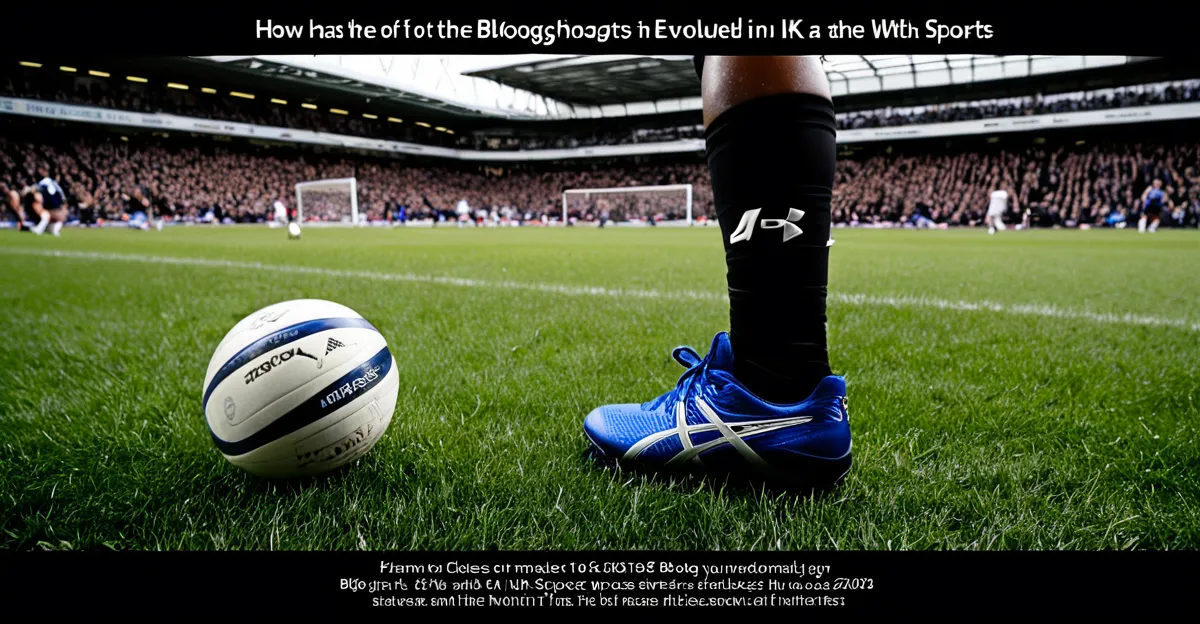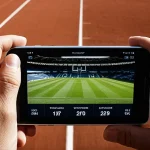The Evolution of Technology in UK Sports: A Historical Perspective
Tracing the journey from early innovations to modern sport breakthroughs
The technology in UK sports history reveals a substantial transformation starting with simple innovations before the 1980s. Early advancements focused on improving equipment and timing accuracy, such as the introduction of electronic timing systems and enhanced materials for sportswear and gear. These foundational changes set the stage for a growing interest in precision and performance measurement.
Also read : How Has Technology Changed UK Sports Over the Years?
From the 1980s to the early 2000s, the sports technology timeline accelerated with the digital era’s arrival. The UK witnessed breakthroughs including computer-assisted training programs, video analysis tools, and more sophisticated performance monitors. These tools enabled coaches and athletes to analyze movements and strategies with unprecedented detail, significantly improving training quality.
Since the 2010s, sport innovation UK has been marked by rapid advancements incorporating data analytics, real-time feedback devices, and smart sensors. Modern technology now not only enhances athlete performance but also revolutionizes how training is approached, prioritizing injury prevention and personalized coaching. This historical perspective underscores how technology has become integral to sports development across Britain.
In the same genre : How Does the Rise of Women’s Football Impact UK Sports Overall?
Game-Changing Technological Advancements
Transforming how sports are played, coached, and officiated in the UK
The rise of sports science UK has been pivotal in elevating athlete preparation and performance. By integrating physiology, biomechanics, and nutrition, sports science creates tailored training programs that optimize results and reduce injuries. This focus on science-based methods has reshaped coaching philosophies across UK sports.
Wearable technology sports devices, such as GPS trackers and heart rate monitors, have become standard tools for monitoring athletes in real time. These gadgets provide precise data on physical exertion, recovery, and movement patterns, allowing coaches to fine-tune training. The sports technology timeline highlights how wearable tech evolved from bulky monitors to compact, accurate sensors indispensable in modern sport innovation UK.
Additionally, VAR UK sports (Video Assistant Referee) technology represents a significant shift in officiating. Implemented to reduce human error, VAR reviews critical decisions using video footage, promoting fairness and accuracy. Despite some controversies, VAR’s inclusion underscores the impact of modern technology in UK sports, ensuring transparency and integrity during matches.
Impact of Technology on Athlete Performance and Training
Technology shaping modern athletic excellence
The role of athlete performance UK has been profoundly enhanced by sports data analysis. This meticulous study of performance metrics enables coaches to pinpoint strengths and weaknesses precisely. How does this translate into better training? By leveraging analytics, individualized programs are crafted to boost capabilities while minimizing injury risk.
Training advancements stem from wearable sensors that continuously monitor biometrics like heart rate, movement, and fatigue. These real-time insights optimize workouts and recovery protocols. For instance, elite UK sports teams use this data to reduce overtraining and tailor rest periods.
Practical examples illuminate these benefits. In UK football leagues, players wearing GPS devices provide coaches with comprehensive movement patterns, improving tactical decisions on and off the field. Similarly, runners use gait analysis tools to refine technique, preventing common injuries.
Overall, integrating sports data analysis with advanced training methods produces measurable performance gains. This synergy empowers athletes in the UK to train smarter, perform better, and sustain longevity in their careers.
Technology’s Influence on Fan Engagement and Experience
Exploring how tech reshapes how fans connect with sports
Fan engagement technology has revolutionized the way UK sports supporters interact with their favourite teams and events. Interactive apps and social media platforms now offer real-time updates, polls, and augmented reality features that deepen fan involvement beyond traditional viewing.
The surge in live streaming sports UK has expanded access, allowing global audiences to watch matches anytime, anywhere. This evolution caters to diverse schedules and preferences, enhancing convenience while boosting sports’ reach. Services often include multiple camera angles and instant replays, enriching the viewing experience.
Meanwhile, stadium innovation UK focuses on elevating in-person attendance through smart technologies. Innovations such as high-speed Wi-Fi, mobile ticketing, and digital concessions streamline logistics and improve comfort for spectators. Smart seats equipped with charging points and interactive screens enhance engagement, blending technology with live atmosphere.
Together, these advancements ensure fans enjoy a more immersive, accessible, and personalized sporting experience, reflecting how technology is remaking the sports landscape in the UK.
Expert Insights and Data on the Technology-Driven Transformation
Bringing expertise and research to understand sports technology impact
What do experts say about the influence of sports technology? Coaches and athletes consistently highlight how data-driven tools improve decision-making and performance. Industry experts emphasize that the integration of smart devices and analytics is no longer optional but essential in competitive UK sports environments.
Leading sports technology research UK reveals clear trends: increased investment in sensor accuracy, AI-driven analysis, and personalized training platforms. Studies show measurable benefits, including reduced injury rates and enhanced athlete longevity. However, experts caution about overreliance on technology potentially undermining intuition and creativity in sports.
Data on sports innovation in the UK demonstrates a surge in technological adoption across grassroots to elite levels. Reports indicate a positive correlation between technology use and team success, underscoring its strategic importance. Nevertheless, concerns remain regarding equitable access and ensuring technology complements rather than replaces human expertise.
Overall, expert commentary and research affirm that embracing technology in UK sports fosters improved outcomes while highlighting the need for balanced implementation. This evolving landscape demands ongoing evaluation to maximize benefits and mitigate risks.











